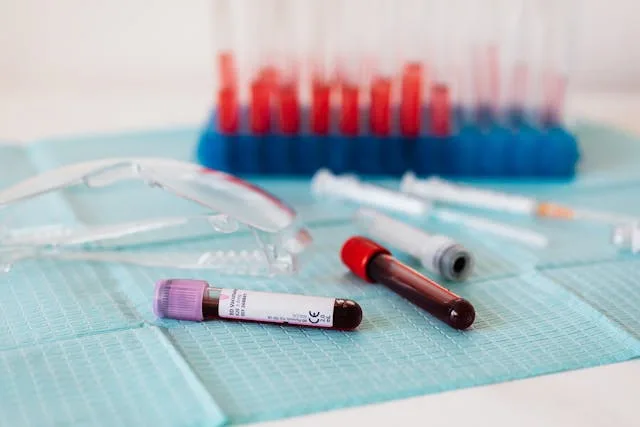New AI-driven test detects ovarian cancer early with over 90% accuracy, study shows
A groundbreaking blood test has been developed that can detect ovarian cancer at an early stage with striking accuracy, offering fresh hope for women facing one of the deadliest gynaecological diseases.
Ovarian cancer affects more than 300,000 women worldwide every year, most of them over 50, according to the World Cancer Research Fund. Because symptoms such as bloating, pelvic pain and frequent urination are often subtle or mistaken for less serious conditions, the disease is frequently diagnosed late. This delay makes effective treatment far more difficult and significantly reduces survival rates.
Now, researchers from the University of Manchester, the University of Colorado, and biotech firm AOA Dx have unveiled a test that could transform diagnosis. The study, published in Cancer Research Communications, trialled a new diagnostic platform that uses artificial intelligence to analyse blood samples for molecular “fingerprints” of ovarian cancer.
The test works by searching for fragments released into the bloodstream by cancer cells. These fragments contain lipids – fat-like molecules – and proteins that together create unique biological markers. By combining multiple biomarkers and applying machine learning to identify patterns invisible to the human eye, the test can pick up cancer signatures with remarkable accuracy.
Embed from Getty ImagesAOA Dx’s chief science officer, Dr Abigail McElhinny, explained: “By using machine learning to combine multiple biomarker types, we’ve developed a diagnostic tool that detects ovarian cancer across the molecular complexity of the disease in sub-types and stages. This platform offers a great opportunity to improve the early diagnosis of ovarian cancer, potentially resulting in better patient outcomes and lower costs to the healthcare system.”
In trials involving 832 patient samples, the results were striking. Samples from the University of Colorado showed the test correctly detected ovarian cancer across all stages 93% of the time, and 91% in early stages. At Manchester, accuracy rates reached 92% overall and 88% for early-stage cases.
Compared with current diagnostic methods – which usually involve ultrasound, CT scans, biopsies, or even surgery – the blood test is simpler, less invasive, and potentially quicker to administer. Crucially, it could flag the disease at a point where treatment is far more effective.
Emma Crosbie, professor at the University of Manchester and consultant in gynaecological oncology at Manchester University NHS Foundation Trust, called the findings a “significant step forward”. She said: “AOA Dx’s platform has the potential to significantly improve patient care and outcomes for women diagnosed with ovarian cancer. We are eager to continue advancing this important research through additional prospective trials to further validate and expand our understanding of how this could be integrated into existing healthcare systems.”
Alex Fisher, chief operating officer and co-founder of AOA Dx, said the test could ultimately “detect the disease at early stages and with greater accuracy than current tools”.
While more clinical trials will be required before the test is approved for widespread use, experts are optimistic. The use of machine learning to combine different biological signals could herald a new era in cancer detection, one where diseases are identified earlier, treated sooner, and survival rates improved.
For women and families affected by ovarian cancer, the breakthrough offers not only the prospect of better treatment outcomes but also the possibility of saving thousands of lives each year.
